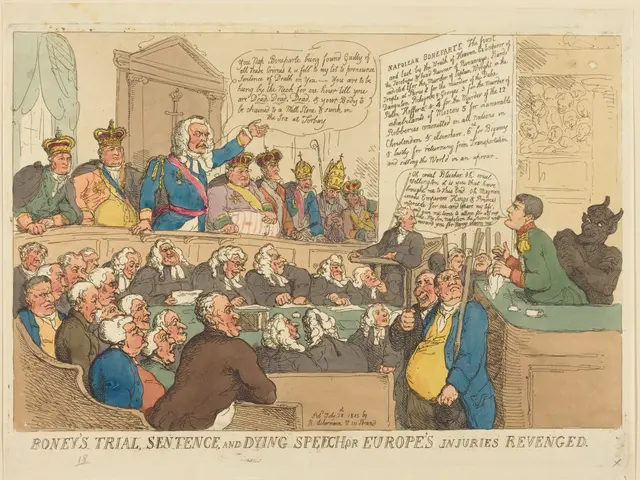Strategies for a Sober January: Maximizing a Month Without Alcohol Consumption
Dry January: A Month-Long Refresh for Your Health
Join the growing Dry January movement, an initiative encouraging individuals to abstain from alcohol during the first month of the year. Participating in this endeavor can provide numerous benefits for both physical and mental health.
Reasons to Try Dry January
Cutting out alcohol for 31 days can lead to several advantages, including:
- Improved Physical Health: Better sleep, increased energy, weight management, a reduction in blood pressure and cholesterol levels.
- Enhanced Mental Clarity: Reduced brain fog, improved focus.
- Financial Savings: Accruing more income by avoiding alcohol purchases.
- Adopting Healthier Habits: Building routines that don't revolve around drinking contributes to long-term wellness.
Establishing Clear Goals for Success
Define your personal objectives for participating in Dry January, such as:
- To feel healthier.
- To curb long-term consumption.
- To gain insights on alcohol's impact on your life.
Having clear motivations will help you resist temptation and stay committed.
Planning Ahead for a Successful Dry January
Preparation is vital to success. Follow these tips:
- Stock Up on Alternatives: Keep your fridge stocked with non-alcoholic beverages like sparkling water, flavored sodas, herbal teas, and mocktails.
- Share Your Plan: Notify friends and family about your participation to avoid unwanted pressure and receive support.
- Avoid Triggers: If certain situations or environments encourage you to drink, plan alternative activities, such as meeting friends for coffee instead of at a bar.
Exploring Non-Alcoholic Options
Discovering alcohol-free drinks that taste indulgent is one way to make Dry January enjoyable. Consider:
- Mocktails: Experiment with virgin mojitos, non-alcoholic sangria, or sparkling elderflower spritzers.
- Non-Alcoholic Beer and Wine: Many brands now offer alcohol-free options that closely resemble the real deal.
- Specialty Drinks: Kombucha, adaptogenic elixirs, or premium tonic waters can elevate your drink game.
Creating New Rituals
Alcohol often becomes a ritual, like having a drink after work or on weekends. Replace these habits with healthier routines like:
- Evening Tea Time: Try unwinding with a calming herbal tea instead.
- Journaling or Reading: Use the time you'd spend drinking for self-care and personal growth.
- Exercise: Endorphins from a workout can offer the same calming effect as alcohol.
Tracking Your Progress Throughout the Month
Keeping track of your progress can boost motivation. Utilize apps, journals, or set financial goals to stay accountable.
Navigating Social Situations Without Alcohol
Participating in Dry January may seem challenging during social events, but it's achievable:
- Practice Responses: Have a simple explanation, like "I'm doing Dry January" or "I'm taking a break from alcohol."
- Bring Your Own Drinks: Show up with your favorite alcohol-free option to ensure you have something to drink.
- Focus on Connection: Engage in meaningful conversations and activities to shift the focus away from drinking.
Embracing the Benefits of Dry January
As the days go by, take time to appreciate the positive changes:
- Better Sleep: Alcohol disrupts sleep patterns, so you might find yourself sleeping more restfully.
- Improved Mood: Reduced alcohol intake can lessen anxiety and help regulate your emotions.
- Clearer Skin: Hydration and the absence of alcohol's dehydrating effects can lead to improved complexion.
Dealing with Slip-Ups
If you have a drink, don't be too hard on yourself. The key is to learn from the experience and get back on track.
Assessing Your Relationship with Alcohol
Dry January isn't just about avoiding alcohol; it's an opportunity to reevaluate your drinking habits and lifestyle:
- Examine Social Pressure: Identify if you're drinking out of obligation or genuine enjoyment.
- Evaluate Your Feelings: Reflect on how your body and mind feel during the month.
- Identify Habits to Continue: Decide whether to maintain an alcohol-free lifestyle, cut back, or drink in moderation.
Celebrating Your Success
Complete Dry January with a sense of accomplishment:
- Treat Yourself: Use the money you've saved to buy something special or invest in a memorable experience.
- Share Your Story: Inspire others by sharing your journey and what you've learned.
- Keep the Momentum Going: If you feel great, consider extending your alcohol-free streak or incorporating more alcohol-free days into your routine.
Dry January: More Than a Dry Month
Dry January is not merely a month without alcohol; it's a chance to reset and create healthier habits for the year ahead. By setting clear goals, planning ahead, and embracing the benefits, you'll not only make it through the month but also gain valuable insights about yourself and your lifestyle. Whether you continue an alcohol-free journey or simply reduce your intake, Dry January can be a powerful step toward a healthier, happier you.
- By joining the Dry January movement, individuals can work towards bettering both their physical and mental health.
- Participants can expect numerous advantages, such as improved sleep, increased energy, weight management, and enhanced mental clarity.
- To stay committed, it's essential to establish clear goals, like feeling healthier or gaining insights on alcohol's impact on one's life.
- Preparation is vital for success; stock up on non-alcoholic beverages, share your plan with friends and family, and avoid triggers.
- Experimenting with non-alcoholic options like mocktails, alcohol-free beer, wine, and specialty drinks can make Dry January enjoyable and help participants discover new favorites.
- Replace alcohol-related rituals with healthier routines, such as evening tea time, journaling, reading, or exercise, and track progress throughout the month to boost motivation.







